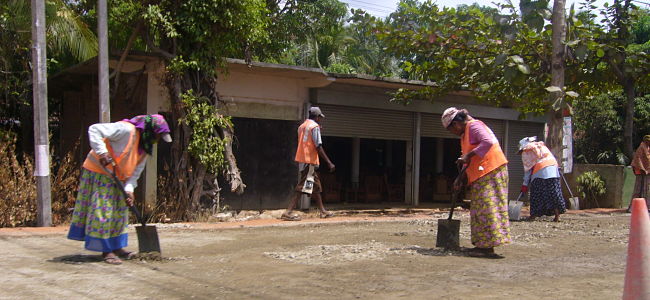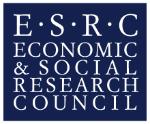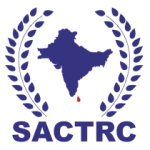Preventing suicide in Sri Lanka: Supporting vulnerable populations

In the last two decades, Sri Lanka has made significant progress in reducing its suicide rate, but the suicide rate in young people is still twice that seen in high-income countries. There is an urgent need for a cross-sectoral approach to reduce the suicide rate in Sri Lanka.
Background
In the mid-1990s Sri Lanka had one of the highest suicide rates in the world. In the last two decades Sri Lanka has made significant progress in reducing its suicide rate through removing the most toxic pesticides from the country (the most common method of suicide until recent years). However, suicide is still one of the leading causes of death in 15-29-year olds. The suicide rate in young people in Sri Lanka is twice that seen in high-income countries. Most suicide deaths occur in rural areas and the highest rates are in young women and older men.
Social factors are recognised as important in suicide but their role in this region is not clear. A better understanding is needed to inform suicide prevention efforts; a reduction in the suicide rate is one of the UN SDG (sustainable development goal) indicators and is a target of the WHO Mental Health Action Plan.
This research investigated the association between social factors, such as poverty, and attempted suicide risk in a large rural population in the North Central Province. A door-to-door survey of 150,000 people in 54,000 households were combined with hospital data on suicide attempts. All eligible households in the area were approached and 95% responded to the survey.
The findings of this analysis identified four vulnerable populations: 1) farmers; 2) daily wage labourers; 3) female headed households; and 4) foreign migrant households.
There is an urgent need for a cross-sectoral approach for reducing the suicide rate in Sri Lanka. This policy report presents the initiatives suggested by the stakeholder workshops. The recommended strategies range from reducing alcohol misuse to developing relationship and vocational skills, as well as improved mental health service provision and awareness.
Research summary
We studied survey and hospital data collected from 54,000 households in Rajangana, Thambuttegama, Nottchiyagama, Talawa, Galnewa and Iplogama in the North Central Province of Sri Lanka. From this, we identified four vulnerable population subgroups at a high risk of attempted suicide. The risk of attempted suicide was double in farmers, daily wage labourers, and foreign migrant households, and significantly elevated in female headed households.
Following the survey analysis, we conducted ten stakeholder workshops with a total of 100 participants to share these findings. We engaged a wide range of stakeholders including: teachers, social workers, Grama Niladhari (village officers), foreign migration officers, community leaders/members, national government officials (Ministry of Health, Education, Social and Welfare), non-governmental agencies, researchers and charities. The stakeholders were first presented with the findings of our research which identified four vulnerable subgroups within the study population. Participants were asked to state what is likely to have contributed to the higher risk in each subgroup. Interpersonal conflicts were highlighted as one major reason why people attempt suicide.
The resulting list of problems identified by community stakeholders were used to aid participants in suggesting possible solutions to the problems identified.
Stakeholders commented that the people in the subgroups identified in the research were all (at some stage) connected to each other (e.g. female headed households and foreign migrant women are likely to be married to a daily wage labourer), and that many of the problems faced by one grouping were common to those experienced by the other vulnerable people. It was also clear that the factors identified were interrelated.
Based on the problems identified (see table on back page), the stakeholders recommended a wide range of possible interventions. Stakeholders considered that the combination of poor problem-solving skills and the culture of using suicide as a way of dealing with difficult situations (a ‘solution’ commonly portrayed in local media) leads to an increased risk of suicide attempts in these vulnerable people. The workshop with national representatives also highlighted the need for more orchestrated service provision.
Some of the recommendations have universal benefit to all four groups, whilst others will be of benefit to specific subgroups.
Universal recommendations:
Adult and child educational support:
- School and community settings should deliver a relationship and conflict resolution skills training programmes.
- The Ministry of Social Empowerment, Welfare and Kandyan Heritage needs to increase its provision of scholarships/grants to children from poor families.
- The Divisional Secretariats should deliver an adult education program on basic budgeting skills. Schools should also prioritise budgeting skills development.
- Provision of vocational training should be increased to promote self-employment opportunities with small grants to facilitate this
Mental health support:
- Two public health campaigns to be conducted by the Ministry of Health, in collaboration with relevant stakeholders: first, focusing on mental health awareness and second, raising awareness of the effects of alcohol addiction.
- The Department of Health, supported by non-governmental organisations, should develop a coordinated and easy to navigate package of services to support individuals facing financial and/or personal difficulties, and/or experiencing alcohol addiction in rural communities. This could include increasing number of trained lay community counsellors.

Findings and recommendations specific to groups:
Farmers:
Stakeholders identified the insecurity of their income coupled with high agricultural expenses as major challenges for farmers. An inadequate harvest, poor understanding of market demands, and/or a lack of a minimum price for their crop leads to difficulties in paying off loans and increased family disputes.
Stakeholders felt that the current system of providing monetary grants for purchasing fertilizers is not as effective as the previous fertilizer product provision.
- The Ministry of Agriculture needs to establish a minimum market pricing for crops.
- Decisions about the provision of water for farming and other farming activities need to be made in consultation with the farming community.
- The Department of Agriculture should run educational programs for farmers to improve farming practices and planning skills to meet market demands.
Daily wage labourers:
Daily wage labourers are those doing manual labour for cash and have commonly low levels of education. There are no labour laws or organisations protecting the rights of these workers, and they typically work long hours for variable rates of pay (ranging from 800-1200 Rs ~ 5-8 USD).
- The Department of Labour should mandate a minimum daily wage to be paid by employers
Foreign migrant households:
The stakeholder consensus was that the migration of mothers abroad (the most common form of migration in this area) should be discouraged because of the challenges faced by the children (and husbands) of these women in their absence. There was significant concern about the welfare of children who were left behind, particularly in relation to child abuse. Whilst participants were in favour of the current legal restriction on migration of women with children, the majority of stakeholders highlighted the need for alternative forms of employment for these women and their households if foreign migration is constrained.
- Increased employment opportunities (e.g. through self-employment) for mothers who wish to migrate
- The foreign employment and social welfare officers in the Divisional Secretariats need to ensure there is a formalised and regular process for monitoring and supporting the welfare of children from foreign migrant households
- The Sri Lanka Foreign Employment Bureau needs to improve their support of migrants, and their families, who face employment difficulties whilst abroad (especially in relation to pay). This should include the provision of emergency bursaries for left-behind families for living and educational expenses.
Female headed households:
Stakeholders agreed that female headed households are materially and socially disadvantaged. They are disempowered both at home and in the community. Traditionally, Sri Lankan culture dictates that women are under the protection of either their parents (during childhood) or their husbands (during adulthood), and are not expected to manage independently. Without the understanding and basic skills needed to empower women to manage independently they become particularly vulnerable to abuse and exploitation.
- A specialised support program needs to be targeted at female-headed households to empower them to manage independently.
- A nationwide program is needed to improve the image of female-headed households in their communities to help protect them from exploitation and violence. Possible approaches could be bystander interventions and/or programs delivered through the media.
- The Ministry of Finance needs to enforce restrictions on micro-credit agencies from targeting poor households via home visits.
Summary of findings:
- In rural Sri Lanka, we identified four subgroups within the population who are statistically more likely to attempt suicide: 1) farmers; 2) daily wage labourers; 3) female headed households; and 4) foreign migrant households.
- The community identified several interrelated factors which contribute to the high risk in these groups and highlighted a need for better promotion and enhancement of existing service provision to meet the needs the most vulnerable members of the community.
- Economic factors, such as a lack of minimum pricing for crops, a minimum wage for daily wage labourers and insufficient welfare support for children were also highlighted by stakeholders as major challenges.
- A significant universal problem identified both in the stakeholder workshops and in existing literature is the need for improved interpersonal and conflict resolution skills.
- Stakeholders also highlighted the need for counselling support for individuals experiencing difficulties.
Problems identified by stakeholders

Acknowledgements
We would like to thank all staff working on the Safe Storage project and all the community members who contributed to this work. We would also like to thank the stakeholders who participated in our workshops and Mr Chamil Priyadarshana, Dr Judi Kidger and Prof Nav Kapur for their help in developing this report.
Further information
Knipe DW, Metcalfe C, Fernando R, et al. Suicide in Sri Lanka 1975-2012: age, period and cohort analysis of police and hospital data. BMC Public Health 2014;14(1):839 doi: 10.1186/1471-2458-14-839.
Knipe DW, Gunnell D, Pieris R, et al. Is socioeconomic position associated with risk of attempted suicide in rural Sri Lanka? A cross-sectional study of 165 000 individuals. BMJ Open 2017;7(3):e014006 doi: 10.1136/bmjopen-2016-014006.
Policy Briefing: Sinhala and Tamil versions
Policy Report 20: December 2017
Preventing suicide in Sri Lanka: Supporting vulnerable populations (PDF, 1,179kB)
Contact the researchers
Dr Duleeka Knipe Vice Chancellors Fellow, University of Bristol
Ms Giselle Dass THEME Institute



Related briefings
Priorities for suicide prevention: balancing the risks and opportunities of internet use
The 2008 Global Financial Crisis: effects on mental health and suicide
Dr Duleeka Knipe, Prof Chris Metcalfe, Prof Helen Lambert, Prof David Gunnell (University of Bristol),
Dr Shaluka Jayamanne (University of Kelaniya, Sri Lanka), Dr Thilini Rajapakse (University of Peradeniya,
Sri Lanka) and Ms Giselle Dass (THEME Institute)